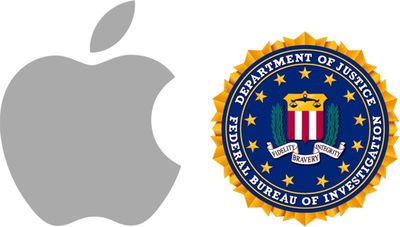A review of Apple's track record of handling government data requests claims that the company received and complied with its first court order to unlock an iPhone in 2008.
According to a Wall Street Journal piece published yesterday, the first court order came from investigators involved in the prosecution of child sex offenders Amanda and Christopher Jansen, a married couple from Watertown, New York.

In that case, which came to light one year after the debut of the original iPhone, Apple not only complied, but also helped prosecutors draft the court order requiring it to do so. The All Writs Act was invoked, and a signature from a magistrate judge then allowed the company to take the device in question back to its Cupertino headquarters and bypass its passcode in the presence of a New York State Police investigator, according to the report.
The All Writs Act is a federal law that judges used to use to conscript telephone companies into helping federal agents install and operate call-tracking devices. At the time, said "people familiar with the matter", it wasn't considered a big step worth noting, because government authorities had long used the All Writs Act to get companies to help them with various devices and technical issues.
In total, Apple helped the U.S. government access over 70 devices, before changing its stance after former NSA contractor Edward Snowden revealed details of the government's surveillance program in 2013.
The revelations led many technology companies to begin tightening security in their products and expanding encryption efforts, and in 2014, Apple introduced iOS 8, which used a new form of encryption that prevented any government agent, or Apple itself, from accessing data stored on the smartphone.
Prior to yesterday's report, it was thought that the government's first cause for concern with Apple's security measures began in 2010 when the company launched the encrypted video messaging service FaceTime, followed by iMessage in 2011.
Following the Snowden revelations, there was apparent division in the government, and the FBI became frustrated that the administration was reluctant to support a law that would help investigators gain access to iPhones and other devices.
That sequence of events and the subsequent San Bernardino shooting ultimately led the government to take the issue public and seek a court order for Apple to unlock Syed Farook's iPhone, resulting in Apple CEO Tim Cook's non-compliance letter which called use of the All Writs Act a "dangerous precedent".
Apple's dispute with the FBI ended on March 28, 2016 after the government found an alternate way to access the data on the iPhone and dropped the lawsuit. It is widely believed, though not confirmed, that the help of Israeli mobile forensics firm Cellebrite led the FBI to withdraw the case.
On Thursday, FBI director James Comey said a "new tool" from a private party allowed it to access Farook's iPhone, but that the method can't be used on iPhone 5s or newer devices.
Note: Due to the political nature of the discussion regarding this topic, the discussion thread is located in our Politics, Religion, Social Issues forum. All forum members and site visitors are welcome to read and follow the thread, but posting is limited to forum members with at least 100 posts.
























Top Rated Comments
Oh right.
If I remember right, you complain about "child labor and other human right abuses" all the time, and I've never seen you give any evidence. So come on, where's the evidence? The only "evidence" for child labor was a lying actor who had made up a story.